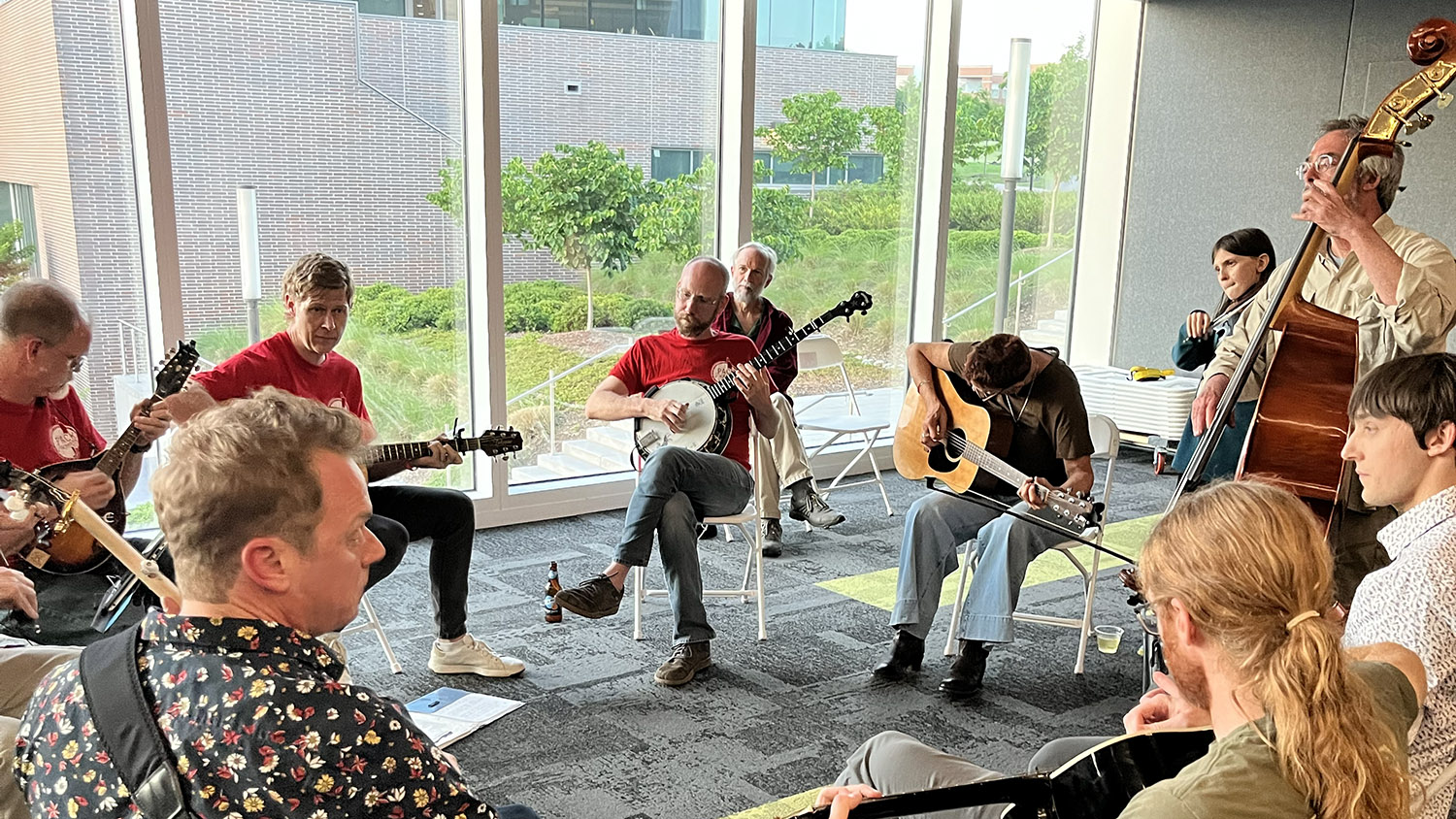ORIED Announces Inaugural GRIP Winners

Four NC State research teams have been selected as the inaugural winners of the Game-Changing Research Incentive Program (GRIP), a three-year, $2.3 million seed-funding initiative designed to stimulate interdisciplinary and collaborative research in the Triangle. The four awards, up to $575,000 each over the three-year period, are provided by the Office of Research, Innovation and Economic Development, RTI International and the Kenan Institute for Engineering, Technology and Sciences.
GRIP is intended to support visionary research ideas for vexing global challenges that will result in large-scale funding, award-winning research impacts and first-class interdisciplinary graduate education and training.
More than 300 NC State faculty were part of 59 teams that submitted proposals for this initiative, along with colleagues from RTI International, Duke and UNC-Chapel Hill. The awarded projects span the varied fields of 3D printing, genetic discovery and prediction, elementary and secondary science education and water sustainability.
Title: Water Sustainability through Nanotechnology: Nanoscale Science and Engineering at the Solid-Water Interface
Principal Investigators: Jacob Jones, David Berube, Douglas Call, Jan Genzer, Detlef Knappe, Yaroslava Yingling, Mohammed Zikry, Susan White (NC State); Young Chul Choi, Khara Grieger (RTI); other participants from NC State, RTI, UNC and Duke.
Synopsis: An interdisciplinary team assembled by the Research Triangle Nanotechnology Network, the Water Resources Research Institute of the UNC system and RTI propose a fundamental and comprehensive research development effort in nanotechnology-enabled systems for water sustainability.
Title: Computer Science for All K-12 Students
Principal Investigators: Glenn Kleiman, Eric Wiebe, James Lester, Tiffany Barnes (NC State); Kimberly O’Malley (RTI)
Synopsis: The proposed project will establish NC State as a national center addressing this critical need to provide pre-college students with foundational knowledge and skills in computational thinking. The partnership of NC State’s Friday Institute, College of Education, Center for Educational Informatics (CEI) and Department of Computer Science, along with the RTI Center for Evaluation and the Study of Educational Equity, is uniquely positioned to take a broad-based, systemic approach to addressing this challenge by fostering state-of-the-art educational innovations, conducting design research in partnership with K-12 schools, developing and implementing scalable and effective approaches to preparing teachers, and working with state government and business leaders to make NC a model in bringing computational thinking and digital-age workplace skills into K-12 education.
Title: 3D Printing of Fibrous Tissue Engineered Medical Products: A New Paradigm for Tissue Biofabrication and Therapeutics
Principal Investigators: Behnam Pourdeyhimi, Frances S. Ligler, Benoit Maze, Matthew B. Fisher, Rohan A. Shirwaiker, Kyle G. Mathews (NC State); Shawn D. Hintgen, Jeffrey T. Spang, Bruce Cairnes (UNC-Chapel Hill).
Synopsis: 3D printing is driving major innovations in many areas, such as engineering, manufacturing and medicine. While currently used primarily to manufacture prototypes and small products, recent innovations have enabled 3D printing of biocompatible materials, cells, and supporting components on fibrous structures to form complex functional living tissues. However, there is need for mass customization. This proposal seeks to extend the recent innovations in 3D printing and bio-printing by developing a fiber-based printing system that underpins the essential need for mass customization technologies, and open up new interdisciplinary areas of research for healthcare, engineering and other applications.
Title: The NC State/RTI Program In Genetic Discovery and Prediction
Principal Investigators: Fred Wright, Alison Motsinger, Jung-Ying Tzeng, Zhao-Bang Zeng, Yi-Hui Zhou, Marie Davidian, Spencer Muse, Siddhartha Thakur (NC State); Carol Hamilton, Wayne Huggins, Rebecca Boyles, James Balhoff, Stephen Hwang and Michelle Krzyzanowski (RTI).
Synopsis: This proposal seeks to create a multi-faceted three-year program in genetic discovery and prediction, initially organized around a demonstration and feasibility pilot for a highly ambitious effort the team calls the “1000 GWAS Project.” The project will compile an unprecedented number of publicly available genome-wide association studies (GWAS, representing hundreds of thousands of patients). These studies have been used to identify genetic variants that predispose humans to disease and can be used to predict patient outcomes. The project will re-analyze the combined data using the latest methods for genetic analysis and quality control, combined with new linkages to standard measures for phenotypes, as well as data on clinical covariates and exposures. Finally, the project will feed back into public repositories, providing an open-source analysis pipeline and community resource for ongoing research. The unprecedented data compilation and comprehensive analysis will reveal subtle and more complex interactions between genes, environmental exposures and resulting disease and treatment outcomes.
This post was originally published in NC State News.


